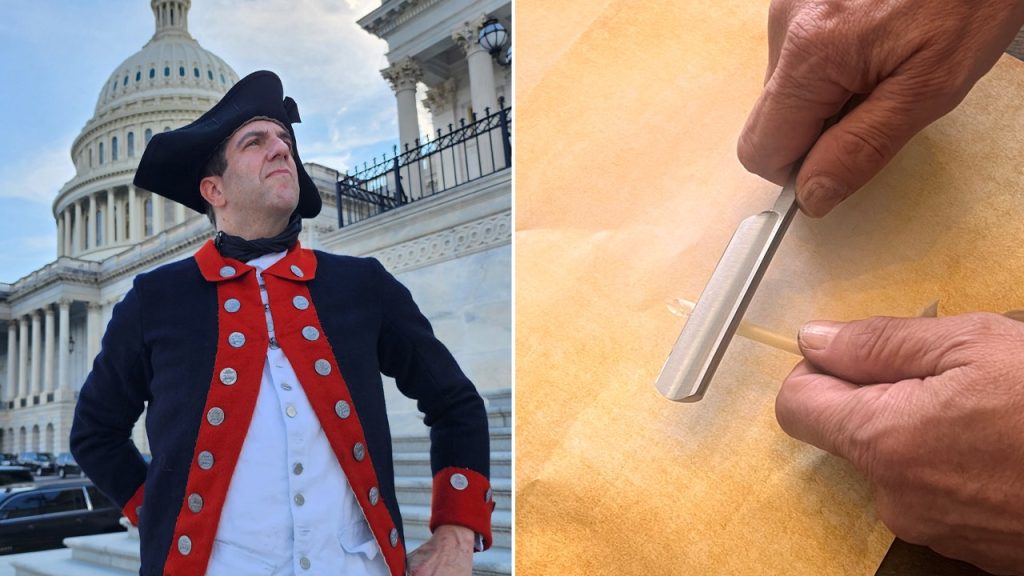In his book “The Year of Living Constitutionally,” A.J. Jacobs explores lessons from the Founding Fathers and the importance of getting one’s hands dirty. While researching and writing the book, Jacobs lived as people did in the Founding era, engaging in a lot of do-it-yourself work with his hands. This included using a quill pen, carving his own quills, whittling a walking stick, mixing ink from abandoned wasp nests, and sewing his own clothes. Jacobs believes that crafting one’s own objects connects a person with those objects in a concrete way and instills a deeper appreciation for them compared to purchasing mass-produced items.
Jacobs emphasizes the value of face-to-face civil discussions with people outside one’s usual social circles. By engaging in activities like baking bread from scratch, Jacobs learned that making things by hand is a core American value that fosters a sense of pride and connection to the objects created. He references the Ikea Effect, a social psychology phenomenon where individuals place higher value on objects they have built themselves. Additionally, Matthews B. Crawford’s book “Shop Class as Soulcraft: An Inquiry into the Value of Work” discusses the shift towards passive consumerism and the diminishing art of repairing objects, advocating for a return to hands-on craftsmanship.
By making products by hand, individuals can express their individuality and produce items that are unique and imperfect, which is celebrated in Japanese culture through the concept of “Wabi-Sabi.” Jacobs argues that true individuality can be achieved by creating one’s own items rather than mass-purchasing standardized products. He found that despite not being naturally handy, the joy of craftsmanship and the pride derived from making one’s own items outweigh the messiness and imperfections that can come with hands-on work. Jacobs’ book “The Year of Living Constitutionally: One Man’s Humble Quest to Follow the Constitution’s Original Meaning” delves into his experiences and findings from this exploration of living as the Founding Fathers did.
In today’s society, where consumerism and dependence on technology are prevalent, Jacobs encourages individuals to embrace the “right to repair” movement and push back against the trend of throwing away broken items. By advocating for manufacturers to create products that are repairable by consumers, Jacobs believes that people can rekindle a sense of empowerment and self-sufficiency in maintaining and fixing their possessions. Through his experiences in researching and writing his book, Jacobs rediscovered the satisfaction and fulfillment that comes from creating objects through craftsmanship, highlighting the importance of hands-on work in fostering a deeper connection to the products we use in our daily lives.
Ultimately, Jacobs’ exploration of living constitutionally and the lessons learned from the Founding Fathers underscore the value of engaging in manual labor and craftsmanship. By getting his hands dirty and embracing the process of creating items by hand, Jacobs gained a newfound appreciation for the objects he interacted with. He emphasizes the importance of individualism, pride, and connection to one’s work, as well as the benefits of face-to-face discussions and the revitalization of repair practices in a society that often prioritizes mass consumption and convenience. Through his book and personal experiences, Jacobs encourages readers to rediscover the joy of crafting, repairing, and connecting with the objects around them.


